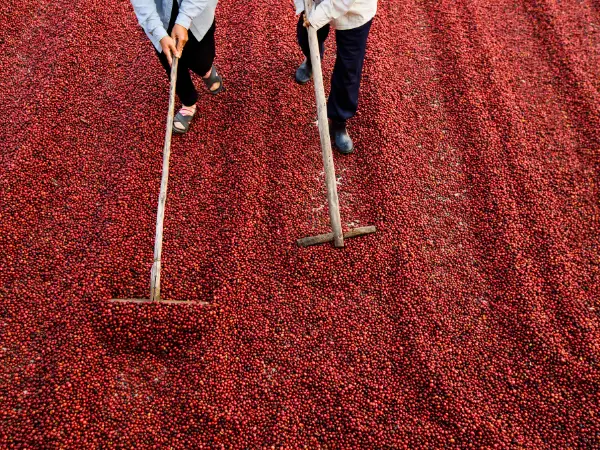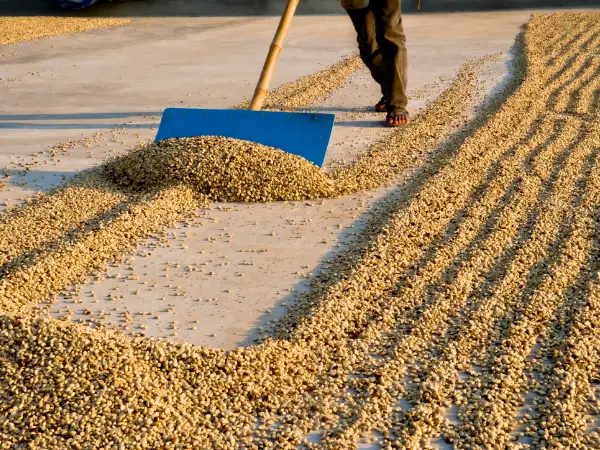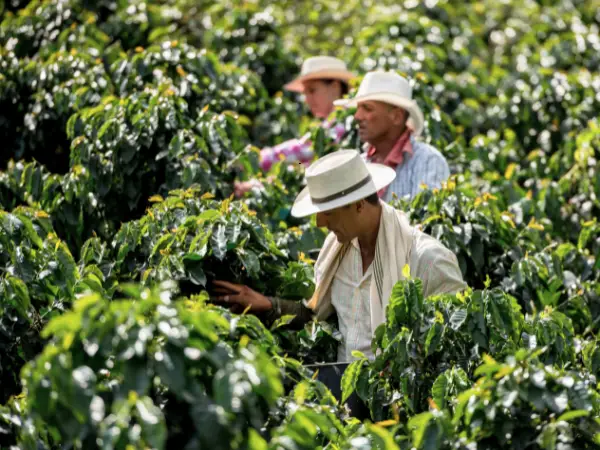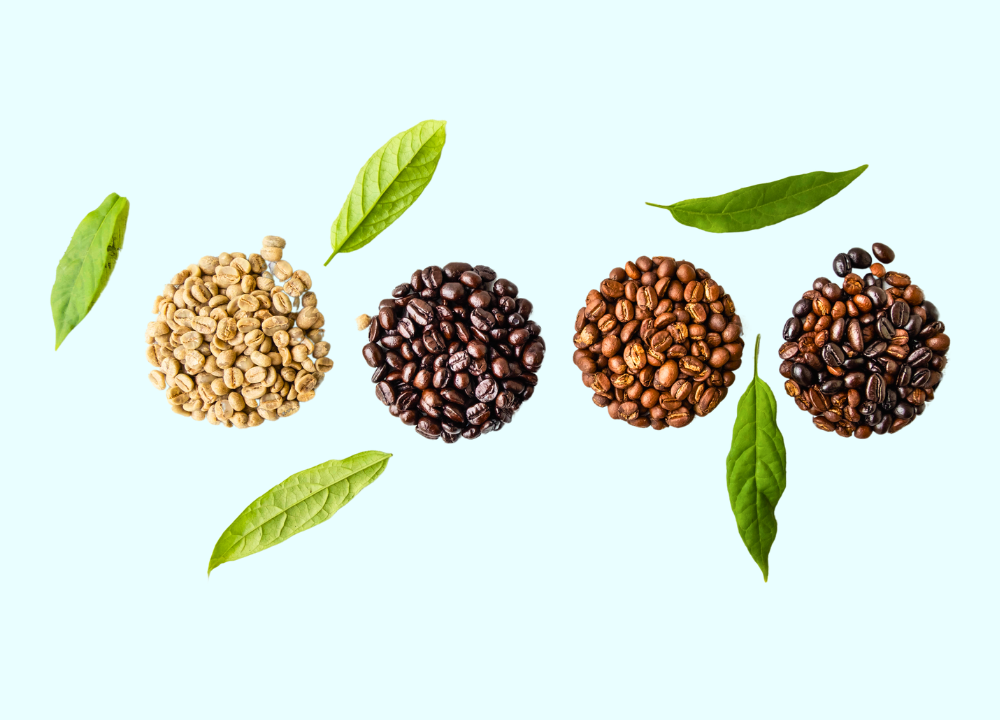Organic coffee beans are often considered better for quality and health due to their natural cultivation methods. They contain fewer chemicals and pesticides.
Coffee enthusiasts are increasingly turning to organic coffee beans. The reasons are clear: better taste, fewer chemicals, and potential health benefits. Organic coffee is grown without synthetic fertilizers, pesticides, or genetically modified organisms. This natural cultivation method often results in a richer flavor profile.
What Are Organic Coffee Beans?
Organic coffee beans are grown without synthetic fertilizers, pesticides, or genetically modified organisms (GMOs). This practice ensures that the beans are not only healthier for consumers but also better for the environment.
Understanding Organic Certification Standards
Organic certification standards are rigorous and ensure that the coffee you consume meets strict guidelines. Various organizations set these standards, including the USDA, EU, and Fair Trade. To be certified organic, coffee farms must adhere to the following practices:
- No Synthetic Pesticides or Fertilizers: Farmers use natural alternatives to maintain soil fertility and manage pests.
- Non-GMO Seeds: The beans come from plants that are not genetically modified.
- Environmentally Friendly Farming: Practices such as crop rotation, composting, and shade-growing are encouraged.
These standards are verified through regular inspections and audits. The table below highlights some key differences between organic and non-organic coffee beans:
| Criteria | Organic Coffee Beans | Non-Organic Coffee Beans |
|---|---|---|
| Use of Pesticides | No synthetic pesticides | May use synthetic pesticides |
| Soil Fertility | Natural fertilizers | Synthetic fertilizers |
| Genetically Modified | Non-GMO | May be GMO |
How Organic Coffee Beans Are Grown
Growing organic coffee beans involves eco-friendly and sustainable methods. Farmers focus on maintaining soil health and biodiversity. Here are some key practices:
- Shade-Grown Coffee: Coffee plants are grown under a canopy of trees. This method preserves natural habitats and promotes biodiversity.
- Crop Rotation: Farmers rotate coffee crops with other plants to maintain soil fertility and prevent pests.
- Composting: Organic waste materials are composted to create natural fertilizers. This enriches the soil without harmful chemicals.

Quality Comparison: Organic Vs. Non-organic Coffee Beans
The comparison between organic and non-organic coffee beans reveals interesting differences in flavor, taste, and overall quality. Let’s explore these aspects to determine if organic coffee beans are worth the hype.
Flavor Profile Differences
One of the most noticeable differences between organic and non-organic coffee beans is the flavor profile. Organic coffee is often praised for its rich and complex flavors. This is because organic farming methods focus on maintaining healthy soil, which can enhance the natural taste of the beans.
- Organic Coffee: Typically, organic coffee has a cleaner taste. It often features notes of fruit and floral undertones, providing a smooth and balanced flavor.
- Non-Organic Coffee: Non-organic coffee might have a more robust and intense flavor. However, it can sometimes include bitter or chemical aftertastes due to the use of synthetic fertilizers and pesticides.
Here is a table summarizing the flavor profile differences:
| Aspect | Organic Coffee | Non-Organic Coffee |
|---|---|---|
| Primary Flavors | Fruity, Floral | Robust, Intense |
| Aftertaste | Clean, Smooth | Bitter, Chemical |
| Overall Balance | Balanced | Varied |
Does Organic Coffee Taste Better?
Taste is subjective, and what one person loves, another might dislike. Many coffee lovers argue that organic coffee tastes better due to its cleaner and more natural flavors. The absence of synthetic chemicals allows the bean’s true essence to shine.
Several factors contribute to this perception:
- Chemical-Free Farming: Organic coffee beans are grown without synthetic pesticides or fertilizers. This can lead to a purer taste.
- Environmental Factors: Organic farming often uses shade-grown techniques. This helps in developing richer flavors due to slower maturation of the beans.
- Processing Methods: Organic beans are usually processed using traditional methods. This can enhance the natural characteristics of the coffee.
Many people find that organic coffee has a more nuanced flavor. This is often described as smoother and less bitter than non-organic coffee. However, individual preferences play a significant role in determining which type of coffee tastes better.
Factors Affecting Coffee Bean Quality Beyond Organic Label
While the organic label indicates certain standards, many other factors affect the quality of coffee beans. Understanding these can help in making an informed choice.
- Altitude: Coffee grown at higher altitudes tends to develop more complex flavors. The cool climate slows down the maturation process, allowing the beans to develop deeper flavors.
- Soil Composition: Rich, fertile soil contributes to the quality of coffee beans. Organic farming often ensures healthier soil, but non-organic farms with good soil management can also produce excellent beans.
- Harvesting Methods: Hand-picking ensures that only ripe beans are harvested. This method is often used in organic farming but is also practiced in high-quality non-organic farms.
- Roasting Techniques: The way coffee is roasted can significantly impact its flavor. Expert roasters can bring out the best in both organic and non-organic beans.
In conclusion, while organic coffee beans often boast superior flavor profiles, the overall quality of coffee beans depends on various factors. These include altitude, soil composition, harvesting methods, and roasting techniques, beyond just the organic label.

Health Benefits Of Organic Coffee Beans
Organic coffee offers numerous health benefits, making it a preferred choice for many. This section explores the health benefits of organic coffee beans in detail.
Reduced Chemical Exposure
One of the main benefits of organic coffee is reduced chemical exposure. Organic coffee beans are grown without synthetic pesticides, herbicides, or fertilizers. This means fewer chemicals end up in your cup. Here are some key points:
- No synthetic pesticides: Organic coffee is free from harmful pesticides that can affect your health.
- No artificial fertilizers: Conventional coffee often uses artificial fertilizers, which can leave residues.
- Cleaner farming methods: Organic farming practices promote cleaner soil and water.
Organic coffee farming protects farmers too. They avoid exposure to toxic chemicals. This leads to better health outcomes for them and their families. Choosing organic supports safer working conditions.
Nutritional Value Of Organic Vs. Conventional Beans
Organic coffee beans offer higher nutritional value compared to conventional ones. Let’s compare:
| Nutrient | Organic Coffee | Conventional Coffee |
|---|---|---|
| Antioxidants | High | Moderate |
| Vitamins and Minerals | Rich | Variable |
| Caffeine | Natural levels | Processed levels |
Organic coffee beans are rich in antioxidants. These help fight free radicals in the body. They contain more vitamins and minerals like magnesium and potassium. Conventional coffee may lose some nutrients during processing. Organic coffee retains its natural caffeine levels, providing a more balanced energy boost.
The Potential For Fewer Pesticides In Your Brew
Drinking organic coffee reduces the risk of pesticide ingestion. Pesticides can have long-term health effects. Here’s why organic coffee is a safer choice:
- Fewer pesticides in the environment: Organic farming uses natural pest control methods.
- Healthier ecosystems: Organic farms support biodiversity and soil health.
- Safer coffee consumption: Organic beans are less likely to contain harmful residues.
Organic coffee ensures a cleaner brew. You enjoy your cup without worrying about toxic chemicals. This makes organic coffee a healthier option for daily consumption.
Environmental Impact Of Choosing Organic Coffee
This section delves into the eco-friendly benefits of organic coffee farming and how it contributes to a healthier planet.
Organic Farming Practices And Sustainability
Organic farming practices focus on sustainability and reducing environmental harm. These methods avoid synthetic chemicals, which helps in maintaining a healthier ecosystem.
- No synthetic pesticides or fertilizers: Organic farms use natural alternatives, reducing soil and water contamination.
- Crop rotation: This practice maintains soil fertility and prevents pest outbreaks.
- Composting and organic manure: These enrich the soil naturally, promoting healthy plant growth.
A comparison table of organic vs conventional coffee farming practices:
| Aspect | Organic Coffee Farming | Conventional Coffee Farming |
|---|---|---|
| Fertilizers | Natural compost and manure | Synthetic fertilizers |
| Pesticides | Natural pest control | Chemical pesticides |
| Soil Health | Improved with organic practices | Degraded over time |
Organic farming aims to create a sustainable environment. This approach ensures that coffee production does not harm the planet. By choosing organic coffee, consumers support farming practices that preserve nature and foster long-term sustainability.

Soil Health And Biodiversity In Organic Coffee Farms
Organic coffee farms greatly benefit soil health and biodiversity. Healthy soil is crucial for growing quality coffee beans.
Key benefits of organic farming for soil health:
- Soil fertility: Organic practices enhance soil nutrients and structure.
- Water retention: Healthy soil retains water better, reducing the need for irrigation.
- Microbial activity: Organic farms support beneficial microbes that aid plant growth.
Organic coffee farms also promote biodiversity. They provide a habitat for various plant and animal species. This leads to a balanced ecosystem.
- Shade-grown coffee: Trees provide shade, sheltering diverse wildlife.
- Native vegetation: Organic farms often maintain native plants, supporting local flora and fauna.
- Pollinators: Bees and other pollinators thrive in organic environments, aiding coffee plant reproduction.
By fostering soil health and biodiversity, organic coffee farms contribute to a more resilient ecosystem. This approach not only benefits the environment but also ensures the production of high-quality coffee beans.
Are Organic Coffee Beans Worth The Price?
Many coffee lovers wonder if the benefits justify the cost. This section will explore the value of organic coffee beans, focusing on health and quality aspects.
Cost Vs. Value For Health And Quality
When assessing the value of organic coffee beans, it’s crucial to consider both health and quality. Organic coffee beans are free from synthetic pesticides and fertilizers, which means fewer harmful chemicals enter your body. This can lead to improved overall health and reduced risk of exposure to toxins.
The quality of the coffee also plays a significant role. Organic coffee beans often come from farms that prioritize sustainable practices. These practices include crop rotation, composting, and natural pest control. Sustainable farming can result in beans with richer, more complex flavors.
- Health Benefits:
- Reduced chemical exposure
- Fewer synthetic additives
- Potentially higher nutrient content
- Quality Benefits:
- Richer flavors
- Better aroma
- More sustainable farming practices
To provide a clearer comparison, here’s a table that highlights the key differences between organic and non-organic coffee beans:
| Aspect | Organic Coffee Beans | Non-Organic Coffee Beans |
|---|---|---|
| Chemical Exposure | Low | High |
| Farming Practices | Sustainable | Conventional |
| Flavor Profile | Rich and Complex | Standard |
| Price | Higher | Lower |
While organic coffee beans come at a higher price, the health and quality benefits they offer can make them a worthwhile investment for many consumers.

